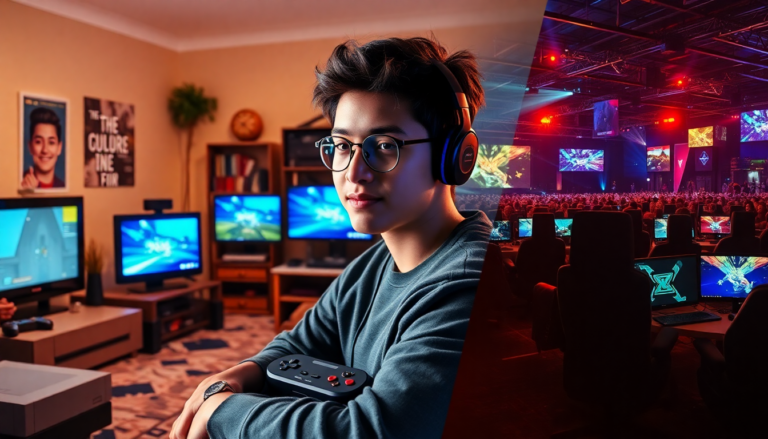Argomenti trattati
Gaming has come a long way since the dawn of the digital age, completely reshaping how we interact, compete, and immerse ourselves in virtual worlds. This evolution isn’t just about technology; it reflects changes in social dynamics and how players engage with one another. So, how did we get from local multiplayer classics to the expansive realms of virtual reality and the competitive world of esports? Let’s dive in!
The Rise of Local Multiplayer
Back in the day, local multiplayer was the heart and soul of gaming. Titles like Space Invaders and Pac-Man drew players into arcades, where they shared experiences and vied for high scores. Remember those days of face-to-face competition? Friends gathered to challenge each other in real-time, creating unforgettable moments.
Local multiplayer games fostered a sense of community that many of us still cherish. The 1980s brought home consoles, with the Nintendo Entertainment System (NES) leading the charge. Games like The Legend of Zelda and Super Mario Bros. became household staples, connecting friends and families in a shared love for gaming. These experiences weren’t just about entertainment; they built relationships and created lasting memories around the living room.
As technology advanced, developers began to push boundaries, crafting deeper narratives and more complex gameplay mechanics. Enter open-world gaming, which offered players vast landscapes to explore at their own pace. Titles such as Ultima and The Legend of Zelda opened up expansive worlds filled with quests and mysteries, paving the way for future gaming experiences.
The Emergence of Online Gaming
The transition from local to online gaming marked a pivotal evolution in the landscape. The late 1990s birthed massively multiplayer online games (MMOs) like EverQuest and Ultima Online, connecting players from around the globe. These games emphasized collaboration and competition, allowing players to form guilds and embark on epic quests together. Isn’t it fascinating how gaming has evolved from solo play to global teamwork?
With the improvement of online connectivity, the gaming experience reached new heights. The launch of World of Warcraft in 2004 revolutionized the MMO genre, drawing millions into its immersive world. Its social dynamics and engaging gameplay transformed it into a cultural phenomenon, where players could spend countless hours exploring dungeons, participating in raids, and building friendships—all from the comfort of their homes.
However, the rise of online gaming hasn’t come without its challenges. The prevalence of microtransactions and gacha mechanics has sparked concerns about spending’s impact on player skill. Critics argue that these practices can create a pay-to-win environment, undermining the essence of competition and skill in gaming. What do you think? Is the thrill of competition being overshadowed by the lure of in-game purchases?
Virtual Reality and the Future of Gaming
The advent of virtual reality (VR) has thrust gaming into a whole new era, offering levels of immersion previously unimaginable. The release of the Oculus Rift in 2016 was a game-changer, paving the way for consoles like PlayStation VR and platforms like Meta Quest. Can you imagine stepping right into your favorite game?
VR technology has evolved tremendously, allowing players to enter richly detailed worlds. Titles like Beat Saber and Half-Life: Alyx have showcased VR’s potential, combining physical movement with compelling narratives. As technology continues to advance, the possibilities for VR gaming are virtually limitless.
And let’s not forget about esports, which have emerged as a powerhouse in the gaming industry, turning competitive gaming into a global spectator sport. Major tournaments now attract millions of viewers, and professional players have achieved celebrity status. While esports may not yet match traditional sports in mainstream recognition, their rapid growth and dedicated fan base hint at a bright future. Are you ready for the next big esports showdown?
In conclusion, the evolution of gaming mirrors broader cultural shifts and technological advancements. From local multiplayer experiences to the immersive worlds of VR and the competitive nature of esports, gaming has truly transformed. As we look ahead, the potential for innovation remains boundless, promising even more exciting experiences for players around the globe. What do you think the future holds for gaming?

